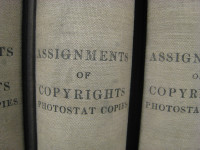Long available in other countries, “unlimited” wireless plans arrived among the big three carriers in Canada yesterday with Rogers launching new unlimited options that offer 10 GB of data at full speed and unlimited additional data at a far slower speeds of 256Kbps. While some criticize the throttled overage speeds or the inferiority of the Canadian plans when compared to what is available in the U.S., this is a good step for consumers that ration their data each month in fear of incurring significant overage charges. Indeed, the comparative data shows Canadian consumers use less data than consumers elsewhere, particularly subscribers with Rogers, Bell, and Telus. Moreover, with carriers generating more than $1 billion per year in overage fees, the change is not trivial with some analysts characterizing the move as a negative for Canada’s wireless industry.
News
Super-Secret Submissions: Corus and SaskTel Block Disclosure of Their BTLR Submissions Claiming Prejudice to Their Competitive Position
Over the past few weeks, I’ve been posting several of the more notable submissions to the Broadcast and Telecommunications Legislative Review Panel submissions that were previously not released to the public. These included Bell, Shaw, Cogeco, Quebecor, CWTA, and a Rogers submission that was released months after the submission deadline. The Access to Information office at Minister Navdeep Bains’ ISED has now completed the request and says it cannot disclose submissions from Corus and SaskTel. Both companies are apparently taking the position that they can withhold disclosure of their submissions on competitive grounds, citing Section 20(1)(c) of the Act:
Rogers Calls for Expansion of Media Bailout to Cover Broadcast Organizations…and Thinks Netflix Should Pay For It
My series on previously secret submissions to the Broadcast and Telecommunications Legislative Review Panel (earlier posts on Bell, Shaw, and Cogeco) continues with the Rogers submission, [Update: Rogers notes that it posted the submission on its site roughly three months after the submission deadline, so it has not been secret since early April] also obtained under the Access to Information Act. There are several notable aspects to the submission, but perhaps none more than Rogers calling for an expansion of the new tax credit for media organizations by extending the approach to broadcasters and expecting Netflix to help pay for it. The media bailout has attracted considerable criticism, particularly given the government’s implementation that has raised serious independence concerns. Before the recent controversies, Rogers envisioned expanding it:
Fixing Fair Dealing for the Digital Age: What Lies Behind the Copyright Review’s Most Important Recommendation
The long-awaited Canadian copyright review report features numerous good recommendations, many of which were rejections of industry lobbying: a rejection of new restrictions on fair dealing for education, rejection of Bell’s FairPlay site blocking initiative, and rejection of limits on safe harbours in response to the so-called “value gap.” Yet the most notable recommendation is the committee’s support for fair dealing for the digital age by expanding its scope and ensuring that it applies equally in the analog and digital worlds.
I wrote about the need to fix fair dealing for the digital age in May 2018:
The Authoritative Canadian Copyright Review: Industry Committee Issues Balanced, Forward-Looking Report on the Future of Canadian Copyright Law
In December 2017, the government launched its copyright review with a Parliamentary motion to send the review to the Standing Committee on Industry, Science and Technology. After months of study and hundreds of witnesses and briefs, the committee released the authoritative review with 36 recommendations that include expanding fair dealing, a rejection of a site blocking system, and a rejection of proposals to exclude education from fair dealing where a licence is otherwise available. The report represents a near-total repudiation of the one-sided Canadian Heritage report that was tasked with studying remuneration models to assist the actual copyright review. While virtually all stakeholders will find aspects they agree or disagree with, that is the hallmark of a more balanced approach to copyright reform.











